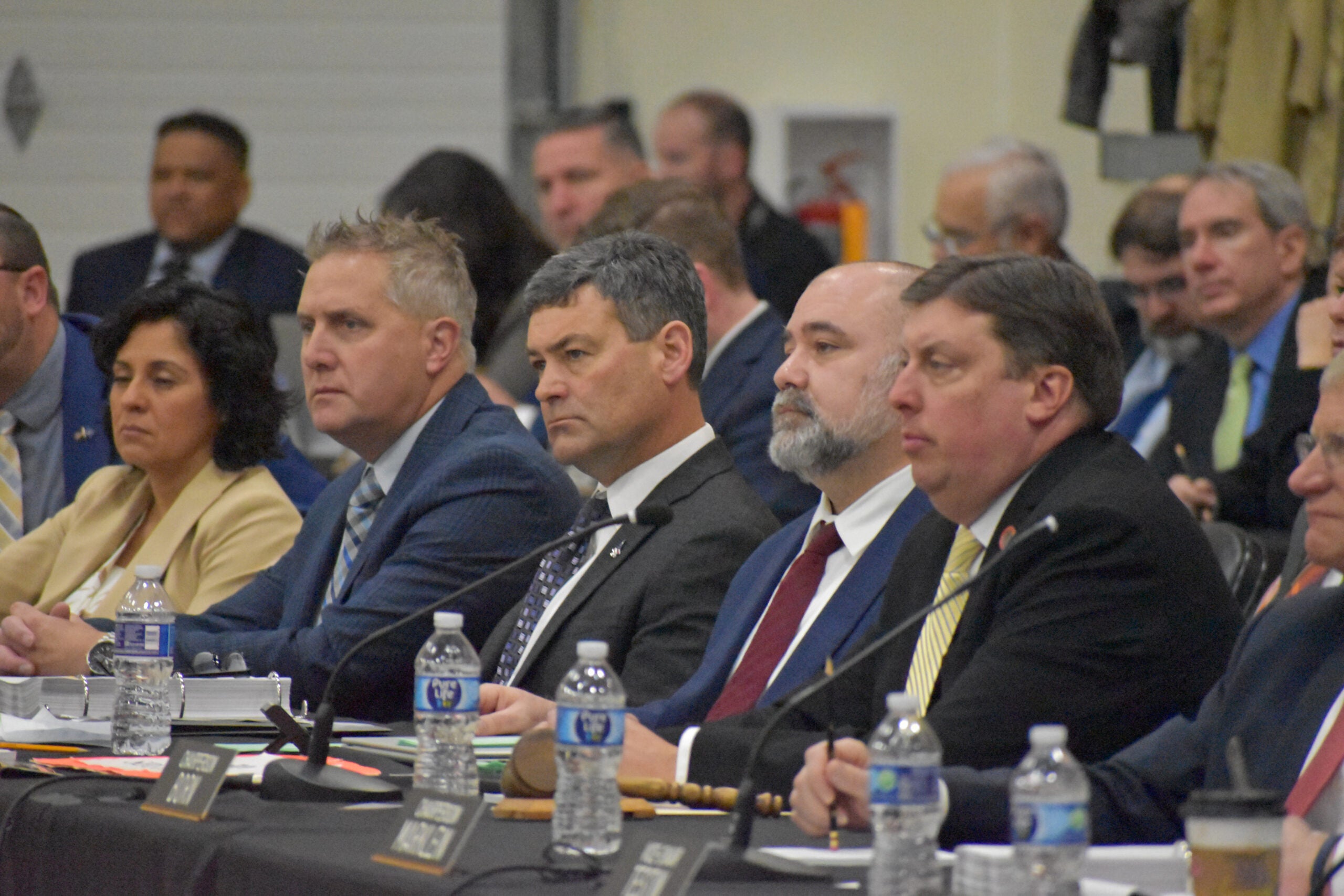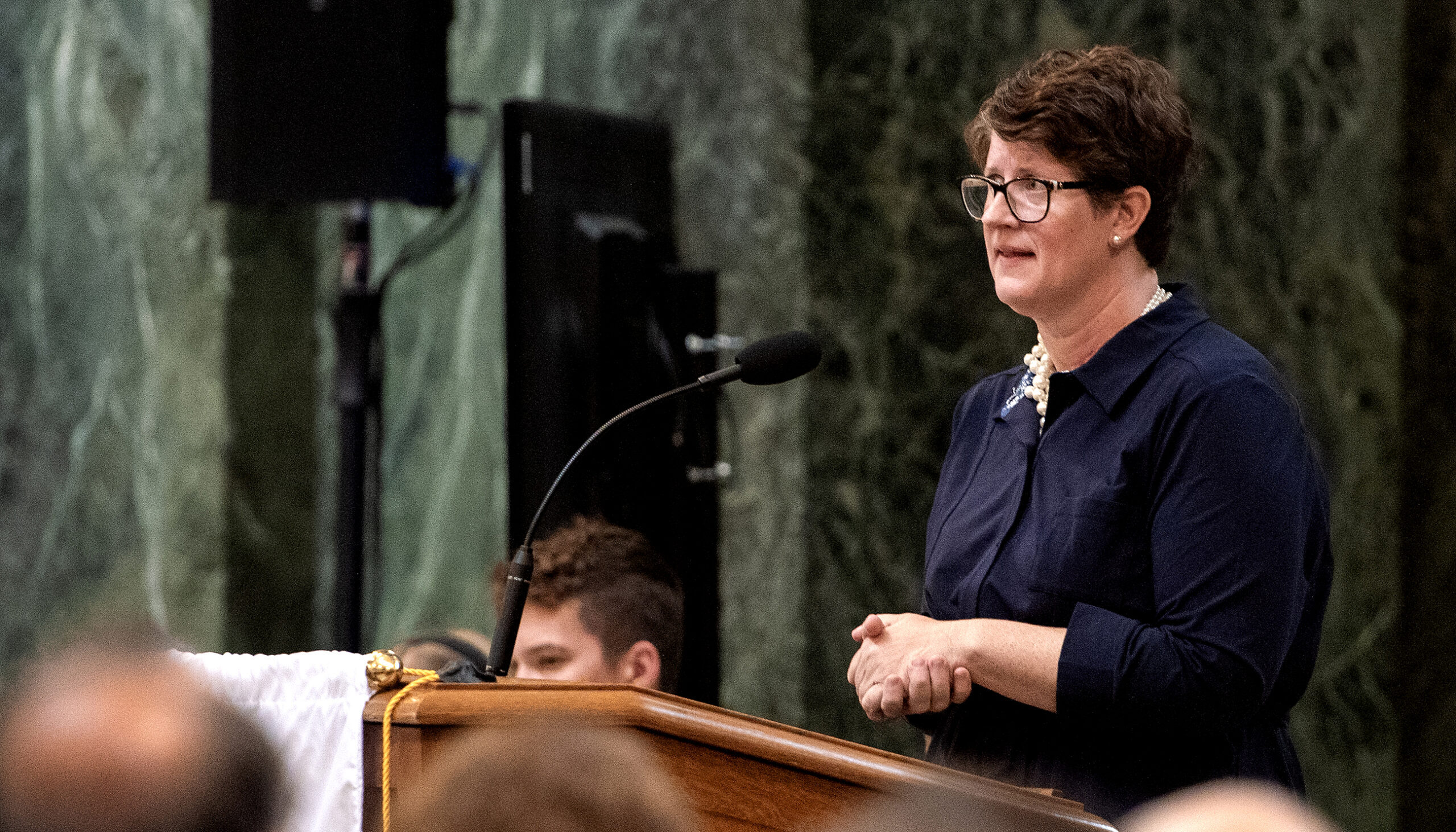State schools Superintendent Tony Evers is thought of as one of the last left-leaning statewide office holders in Wisconsin. The two men appearing beside him on the ballot for Tuesday’s nonpartisan primary have courted the support of the state’s Republicans and business leaders.
John Humphries and Lowell Holtz each tout their experiences working in rural, urban and suburban school districts as they campaign to be Wisconsin’s next schools superintendent. Each man has said his leadership would be a more conservative alternative to two-term incumbent Evers.
Humphries has rolled out ideas in press conferences across the state that he said he believes appeal to a bipartisan coalition of supporters.
Stay informed on the latest news
Sign up for WPR’s email newsletter.
“The first part is about accountability, the second part is being careful with our resources. And then the third part: empowering local parents and educators,” Humphries said, summarizing his nine-prong platform.
Under that umbrella Humphries’ proposing new school report cards, creating a state board of education, a plan to boost elementary reading skills and letting parents at the state’s lowest performing, high-poverty public schools choose new leadership teams. The ideas have gotten him financial backing from the Metro Milwaukee Association of Commerce. Some have challenged his credentials as a conservative though because he, like Evers, signed the petition to recall Gov. Scott Walker in 2012.
The second challenger, Holtz, argues he’s the only true conservative in the race and has gotten financial support from county Republicans and Tea Party groups.
“One of my first items on my platform is restoring safety and discipline to all schools. I really believe in local control. And last but not least, I think it’s really important to empower teachers to do what they do best and that’s teach,” Holtz said.
Holtz is in favor of scrapping the state’s teacher evaluation system and a database to track student progress through the state’s education system. He would also strip away statewide standardized tests that he said duplicate more useful, nationally benchmarked exams most schools use through the year to gage student progress.
But the two are hardly teaming up against incumbent Evers. Last week Humphries accused Holtz of proposing one guarantee the other a job in exchange for dropping out of the race. Holtz countered the two met only to discuss possible cooperation at the behest of unnamed state business leaders.
A document the Humphries campaign provided Wisconsin Public Radio that he alleges came from Holtz appears to outline a job for Holtz within the state Department of Public Instruction that would have included a $150,000 annual salary, a three-year, no-cut contract, a driver and unilateral power over Milwaukee, Madison, Kenosha, Racine and possibly Green Bay. That would have included the ability to change the board of education membership and split districts up.
Holtz’s campaign did not respond to questions about whether he conceived the hypothetical position and how he sees it aligning with his belief in local control of schools.
Despite the flying accusations, there are places where the two contenders’ views overlap. That includes letting local leaders decide what students should be learning. Humphries said Evers unilaterally tied Wisconsin to using the Common Core standards, guidelines for learning in each grade adopted by more than 40 states.
“He made the decision to adopt the Common Core for the entire state, and even the Legislature wanted to intervene and create a board to oversee that implementation,” Humphries said.
Holtz called the standards, developed by the National Governors Association and a group of state schools superintendents, federal overreach. Each man said the standards are too prescriptive and may not serve all students.
Both also point to Wisconsin’s achievement gap between black and white students – the largest in the nation – as another reason voters should choose a new superintendent. Holtz said closing that gap takes setting high standards and supporting all students. He said that as the superintendent of schools in Beloit, he partnered with the business community to do things like pay for students to take the ACT college entrance exam multiple times to help raise graduation and college-entrance rates for all students.
“I don’t use this term lightly,” Holtz said. “The department of public instruction has turned it’s back on our kids of color and that’s the very epitome of institutionalized racism.”
Both men also support expanding the state’s school voucher programs.
Holtz said he doesn’t fear the idea of a voucher in every backpack because he wouldn’t begrudge a parent the chance to take a child out of a low-quality school and the state’s public schools will always have to provide a strong alternative because there are not enough private schools to serve all students.
For Humphries, vouchers are an area where he said Evers has put politics ahead of childrens’ needs and voters wants. As superintendent, he said he’d get out of the way of legislators and make sure the program is working.
Evers dismisses the men’s critiques. He said school districts adopted the Common Core one by one and that student achievement has made progress since he entered office in 2009.
“We’ve increased expectations for kids and at the same time been able to keep our achievement level level and have it slowly increasing, I’d certainly like to have it increase more,” Evers said.
In his next term, Evers would push for more state funding for schools, support for students’ mental health, and a prescription for boosting student performance that moves outside school walls.
“What, as a state, we have to do is be partners with struggling school districts, engage the community,” Evers said. “But also recognize this is more than a school issue, this is a community issue and a state issue. Whether it’s about race or poverty, we have to address a lot of those things simultaneously.”
Evers’s financial backers include the state’s teacher and administrator unions. But he doesn’t buy that voters think of schools in partisan terms. He pointed to the fact that Walker’s proposed budget adopts many of Evers’ own ideas and that bipartisan support swept him into office in the last two races.
“You can’t win 69 out of 72 counties without some Republicans voting for you,” Evers said.
A fourth man, Rick Melcher, is running a write-in campaign against the three on-ballot candidates. Melcher is a Racine math teacher with 25 years of classroom experience. The top two vote-getters in Tuesday’s primary will face off in the general election April 4.
Wisconsin Public Radio, © Copyright 2025, Board of Regents of the University of Wisconsin System and Wisconsin Educational Communications Board.




